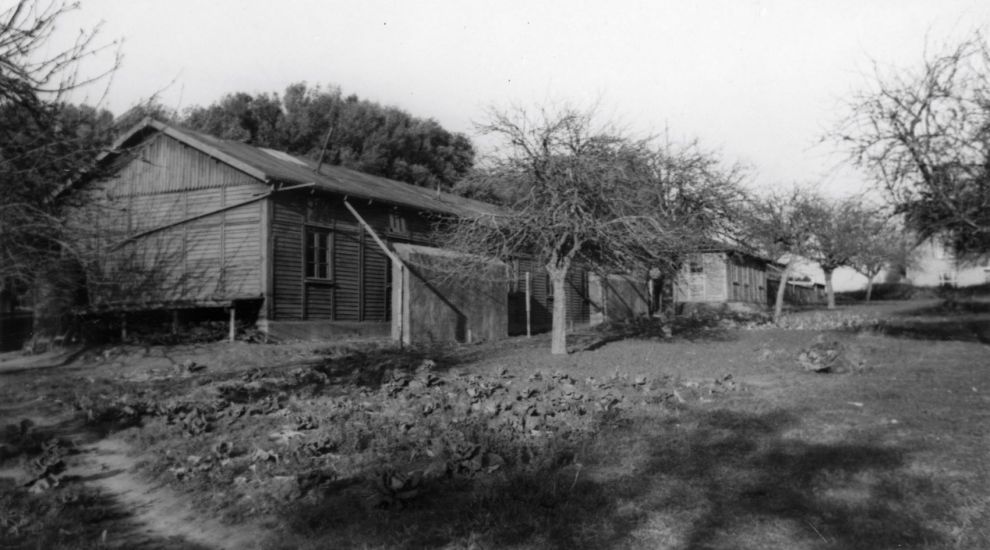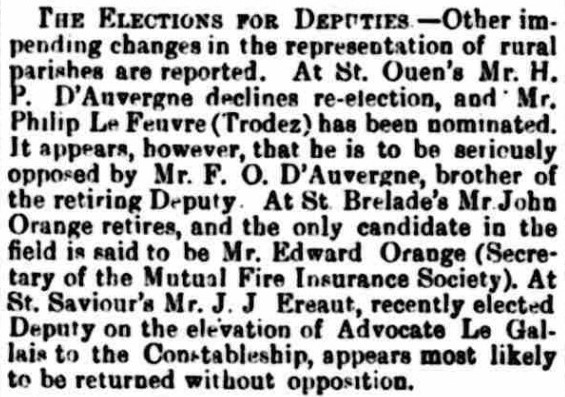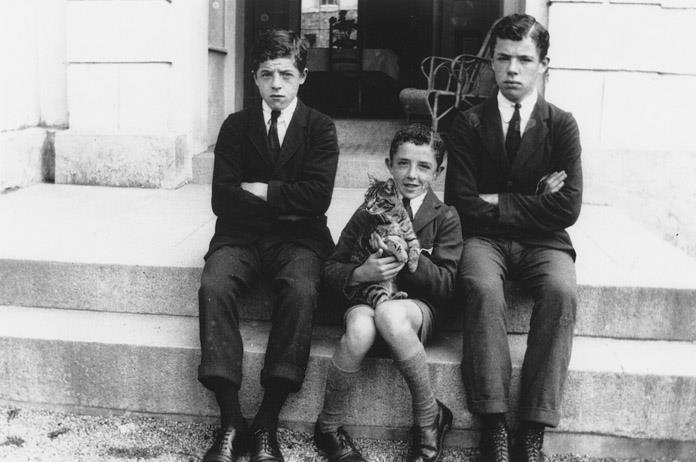


From being home to the winner of St Ouen’s first contested Deputy election, to forming an integral part of the German forces’ defensive network during the Occupation, Morville House is part of the rich history of the Trodez area.
‘Your Home, Your Story’ is a new series of free talks at Jersey Archive that focuses on individual properties nominated by islanders wanting to know more about their home and the area they live in.
In a preview of this Saturday's talk, the team at Jersey Archive shared part of their research on one of the most fascinating properties in Trodez....
In 1856, the States of Jersey had introduced a Law for the election of Parish Deputies to the States Assembly. The Deputies were to have the same rights and functions as members of the existing legislature, which at this time was made up of 12 Jurats, 12 Constables and 12 Rectors, and elections for the position were to be held every three years. St Helier was to be represented by three Deputies, while the other eleven parishes were each to elect one Deputy.

Pictured: Morville House. (Channel Islands Occupation Society)
Philippe d’Auvergne became the first Deputy of the Parish of St Ouen when he was elected, unopposed, in January 1857. The concept of contested Deputy elections seems to have taken a little while to have been embraced among the St Ouennais, as it was not until 29 years later that the parish had its first contested election.
In 1886, the incumbent Deputy H P d’Auvergne decided he would not seek re-election after five years in office. Perhaps expecting a clear run like all those who had run before him, Philippe Le Feuvre, a farmer living in Trodez, put himself forward.
However, on 11 December 1886, the Jersey Weekly Press and Independent reported that for the first time in the parish’s history, there was to be a contested election, with Mr Le Feuvre set to be ‘seriously opposed by Mr F O d’Auvergne, brother of the retiring Deputy’. Mr Le Feuvre stood as the Rose Party candidate, while Mr d’Auvergne for the opposing Laurel Party.

Pictured: Jersey Weekly Press and Independent report on 11 December 1886 about Philippe Le Feuvre's candidacy for Deputy of St Ouen. (Jersey Heritage)
On 14 December 1886, St Ouen parishioners went to the Parish Hall to cast their ballot. Mr Le Feuvre came out on top with 168 votes to Mr d’Auvergne’s 133.
Born in St Ouen in 1825, Philippe Le Feuvre was the son of Philippe Le Feuvre and Nenné Bichard. On the entry recording Philippe junior’s baptism at St Ouen’s Church, his father is referred to as being ‘of Trodez’. On the record of Philippe senior’s marriage in 1810, his father, also Philippe, is also referred to as being of the ‘country of Trodez’.
The Le Feuvre family were a well-established farming family in Trodez, whose recorded association with the area was many centuries-old. At the time of his election in 1886, Philippe lived at Morville House off Route de Trodez. He had acquired the property in 1864 following the death of his brother, Edouard, but it had been in the family for many years prior. In 1867, Philippe also acquired L’Etocquet House – one of the nominated homes researched for this month’s YHYS talk – in similar circumstances from his sister, Jeanne.
Philippe married Elizabeth Le Cerf at St Ouen’s Church in 1856, and had one son, Philip Edward, born in 1860. In 1861, the family were living near La Botellerie, slightly east of Trodez, but after Philippe acquired Morville House in 1864, he and his family appear to have moved into the property.
In 1889, Philippe stood again for election for Deputy and, as was the case three years earlier, he was opposed by Mr d’Auvergne. This time, Philippe increased his majority to 65 and on the 1891 census, Philippe lists two professions: ‘member of the States’ and ‘farmer’.
Philippe went on to hold the role of Deputy of St Ouen for 12 years, standing down in 1898 aged 73 after having been elected, unopposed, for one final three-year term in 1895. He continued to live at Morville House until his death, aged 89, in 1914.

Pictured: Philip, Edward and Jack Le Feuvre of Morville House, Trodez, c.1923. All three brothers later emigrated to New Zealand. (Société Jersiaise)
In his will, Philippe left Morville House to his sole surviving heir, his granddaughter, Florence Alice Feuvre. Florence married John Bailhache Le Feuvre at the Town Church in 1907 and they had five children – Elaine, Kathleen, John, Philip and Edward – all of whom were baptised at St Ouen’s Church.
Florence was living at Morville House with her family and her grandfather at the time of 1911 census, and appears to have remained there up to the point that the property and farm was requisitioned by the German Forces in 1941. The property then became part of an integrated network of constructed German defensive structures known as the Morville Haus resistance nest, which also incorporated nearby Trodez House.
As the German forces were stationed at her property throughout the Occupation, Florence Le Feuvre moved to Rose Lea in St Martin where she lived with her husband, John. Her daughter Kathleen had left Jersey before the Occupation, while her three sons, Philip, Edward and John (or Jack), had ventured even further afield by emigrating to New Zealand in the 1930s.
When Florence died in 1959, her estate was divided among her children. John and Edward were left Morville House and Morville Farm respectively, but, having both established themselves on the other side of the world, neither had any need to keep the property or land. In November 1959, John sold Morville House to Vivien Hogg and a few months later in March 1960, Edward sold Morville Farm to Douglas Richardson, whose family continue to grow Jersey Royals at the farm today.
Pictured top: The grounds of Morville House. (Channel Islands Occupation Society)
This article only touches on some of the research into the Trodez area for Jersey Archive's ‘Your Home, Your Story’ (YHYS) series, sponsored by Antony Gibb Historic Buildings Consultants.
If you would like to hear more stories, Jersey Archive is hosting a free talk this Saturday 16 September at 10:00.
To book a place for the talk, call 833300 or email archives@jerseyheritage.org.
The Archive will also be open from 9:00-13:00 for general research.
What's your home's story? Ammunition, crime and farming in rural Jersey
What's your home's story? Captain falls victim to theft and collision
What's your home's story? To the Manor born
What's your home's story? Farmers appeal against military service
Comments
Comments on this story express the views of the commentator only, not Bailiwick Publishing. We are unable to guarantee the accuracy of any of those comments.